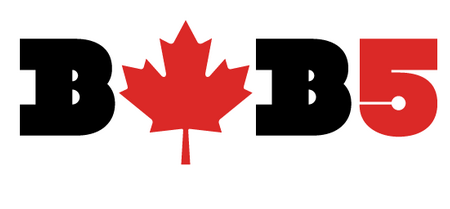
There was an almost-charmingly retro feel to the rage hockey journalists Kevin-Paul Dupont of The Boston Globe and Adrian Dater of The Denver Post and Sports Illustrated displayed in their respective rants against bloggers this week, as it felt like a discussion from another era altogether. Building off the NFL's infamous replacement refs, Dupont called bloggers "replacement journalists" and was roundly bashed for it, especially his unfounded claims that blogs don't contribute to charity. Dater promptly went to Dupont's defence, particularly criticizing the bloggers from Leafs' site Pension Plan Puppets for their site's take on Dupont and getting into a personal fight with one of them.
Naturally, this stirred up some outrage across the hockey blogosphere. What's most interesting is that this made nowhere near the news in wider blog circles that it would have a few years back. Dupont in particular and Dater to a limited extent (he later clarified his position) are fighting a losing battle in a war that's been over for years.
That's not to say that the mainstream media is either dead or dying or that blogs have completely taken over from the old guard; both are blanket statements people have been trying to make for a long time, and at this point, they're just not accurate. What is true is that the mainstream media-blog war is over, and the bloggers won. This victory hasn't been a complete takeover, but the existence and legitimacy of blogs is no longer a question.
A simple case in point: consider how much a sports blogging conference like Blogs With Balls (which we'll be covering in full here beginning later today) has changed in just a few years. The first one I attended was in Las Vegas in 2009, as part of the larger BlogWorld Expo, and most of the issues discussed then largely revolved around that mainstream-blog war: panels there included one on "The State Of The Union" about the future of blogs and another on "The Future Of Sports Media" (the fact that those two could be separated says a lot about 2009), one on the access issues bloggers were facing and even one on how athletes' bypassing of media and blogs to share their message with fans directly might represent a third front in that war between blogs and the mainstream.
The discussions at that event, inside the panels and at the social events, largely focused on blogs as an exciting, revolutionary approach that might change media coverage. Well, the revolution happened, and although it largely wasn't televised, its impacts have been felt across the media universe. Look at the panel schedule for this year's Blogs With Balls: it's mostly about issues within blogs, such as analytics, diversity, plus presentations from some very blog-ish mainstream organizations such as Sports On Earth. There's no need for a panel about blogs versus the mainstream; in fact, given the mainstream to mainstream(ish) jobs bloggers like myself currently hold and the amount of blogging "mainstream" people do, the only appropriate title for such a panel might be Pogo's "We have met the enemy, and he is us."
Again, that's not saying blogs have killed the mainstream: far from it. A more apt description is that the war ended, the sides got together and realized they weren't all that different. Sure, there's still some resentment of blogs from some mainstream people like Dupont, and sure, there are still bloggers who are passionately anti-mainstream. It's moved to much more of a symbiotic relationship than a hostile one, though. Mainstream guys are doing more blogging while bloggers are still getting plenty of value from mainstream journalists' reporting while doing more and more of their own reporting as well.
People on both sides are becoming more cognizant of the other side's value, and it's those people in turn that are doing well. Lots of mainstream reporters on the rise are the ones who get the web, get blogging, understand Twitter, etc. Many of the bloggers who have gone on to greater prominence are those who can use mainstream content effectively to build something new, and those who can use mainstream techniques when it adds value. The lines have become so blurred that it's very hard to find many people who can be described strictly as "bloggers" or "journalists." Most are doing both.
That doesn't mean the mainstream media is dead, and it doesn't mean there aren't still issues blogs have to deal with. In fact, their place-of-position isn't assured either, which is why the existence of a Blogs With Balls panel titled "The New Playground: Social & Mobile Platforms Overtaking Sites/Blogs" should be one of the more interesting this weekend. What it does mean is that the mainstream media-blogger war is dead, or near enough that you could put it on a cart. While that's great news for those of us who were getting tired of the war, it's bad news for Dupont and his ilk that are ferociously holding on to a day and time that has passed by. He fought the blogs, and the blogs won.






Comments are closed.